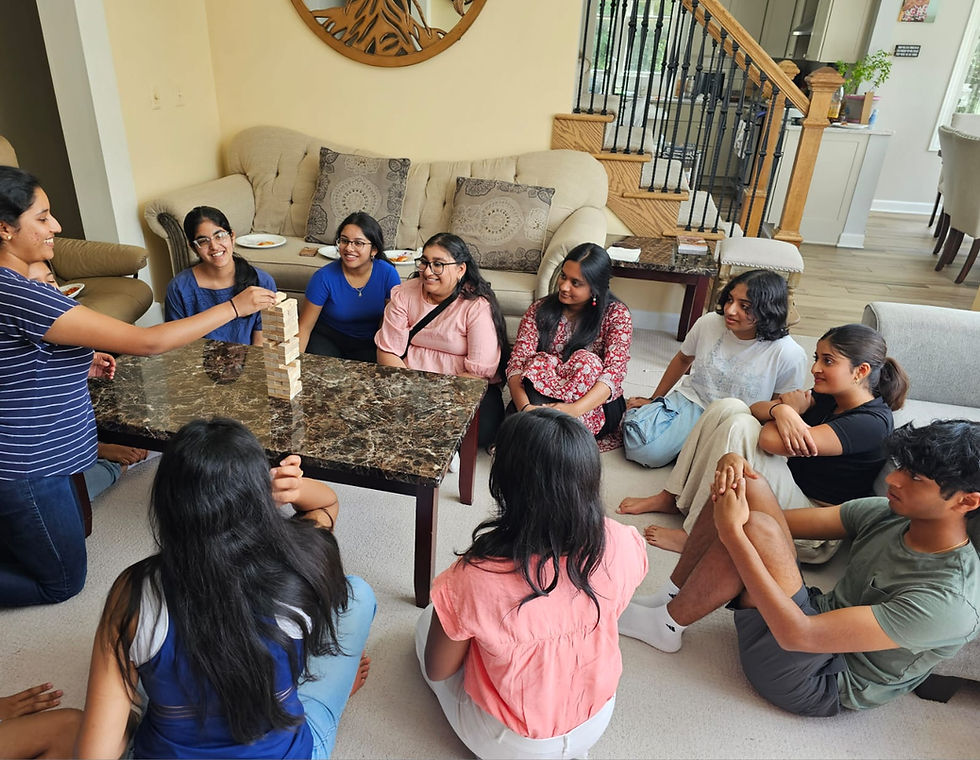The Rural Impact of Climate Change
- vidyaramanathan
- Nov 27, 2024
- 3 min read

Climate change affects everyone, but not everyone feels its impact in the same way. Women, rural communities, and people in lower-income areas often face the toughest challenges. Dr. Neha Pathak, a dedicated advocate for environmental sustainability, shares how her upbringing influenced her passion for protecting the planet, what actions we can take to make a difference, and how climate change uniquely affects women. Her insights remind us that small changes and collective efforts can lead to meaningful solutions for a more sustainable world.
What inspired you to become passionate about the environment and climate change?
Dr. Neha Pathak shared that her passion for the environment began in her early childhood, deeply rooted in her family’s Hindu religious traditions. “We were taught to see the sacred and divine in living beings, but also in the natural world around us. Rivers, trees, and mountains are all revered in this tradition, and this deeply influenced how my parents taught me to view the world,” she explained. Her focus on climate change came later in life when she understood the severity of environmental destruction caused by outdated technologies, like burning fossil fuels. She emphasized the potential of transitioning to cleaner technologies, stating, “Shifting to these cleaner technologies is a win for our health, our climate, and our environment if we move forward with respect for the natural world.”
What are some everyday actions people can take to reduce their environmental impact, especially in rural areas?
Dr. Pathak highlighted the unique challenge faced by rural communities, which often have the smallest environmental footprints yet are asked to contribute to solutions. She provided actionable advice:
Vote with intention: “Beyond voting locally and nationally for representatives who will protect the environment, we make choices every day that can have an impact.”
Avoid plastics: Plastics are derived from fossil fuels and contribute significantly to pollution. Reducing their use is crucial.
Protect trees and nature: Trees play a vital role in regulating the climate by providing shade, reducing heat, and preventing floods and landslides during extreme weather events.
What are ways in which climate change uniquely affects women?
Dr. Pathak explained that women are often disproportionately affected by climate change due to their roles as caregivers. “In rural areas, climate change makes it harder to find safe drinking and cooking water. Women are typically the ones searching for water, which increases the danger and difficulty of their lives,” she noted. She also highlighted how women are impacted by high-heat events and severe air pollution. “When children can’t attend school due to these conditions, women often have to stay home to care for them. Similarly, during climate-related disasters, women are usually the caregivers for both children and elderly family members.”
Dr. Pathak’s insights provide a powerful lens to understand the intersection of culture, community, and climate action. Her story demonstrates how personal values rooted in tradition can inspire global advocacy. Her perspective on women’s unique challenges underscores the importance of equity in addressing climate change. Empowering women and families in rural areas is not just an ethical priority but a practical one for building resilient communities. At CORD, sustainability has a dual focus—environmental sustainability and the longevity of programs in rural communities. This holistic approach ensures that initiatives remain impactful long after external support ends, creating a foundation for long-term change. Dr. Pathak’s call to action reminds us that collective efforts—whether through personal choices, advocacy, or systemic reforms—can help create a more sustainable and equitable future for all. By respecting the natural world and uplifting those most affected, we can address the climate crisis with compassion.
Written by Nidhi Pandya





Comments